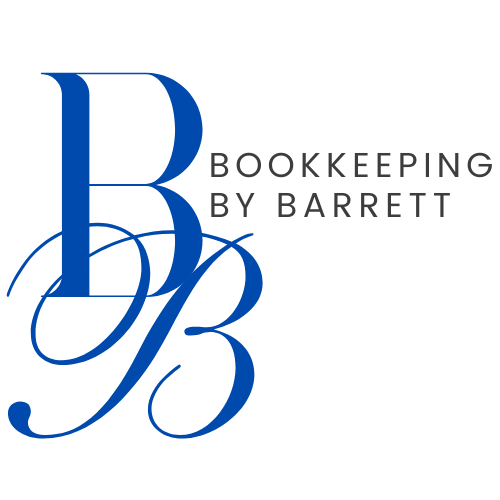If you’ve ever taken a peek inside your bookkeeping file and felt a little overwhelmed, you’re not alone. As a professional bookkeeper I’ve had the privilege of doing some cleanups, and certain mistakes come up time and time again—often without business owners even realizing they’ve happened. While some errors seem small on the surface, they can have a serious impact come tax time, affecting everything from deductions to your total tax liability.
Below are six of the most common mistakes I encounter during cleanups, along with why they matter and how they can cost your business money if left unaddressed.
1. Commingling of Funds
Mixing personal and business finances is one of the most frequent issues I see—especially with newer or smaller businesses. This can happen when an owner uses a personal card for business purchases (or vice versa), or when there’s no clear separation between business and personal bank accounts.
Not only does this make bookkeeping messy and time-consuming, but it also creates red flags during an audit. Worse, it can make it difficult to substantiate business deductions and lead to tax write-offs being disallowed by the IRS.
Impact: Potential loss of deductions, increased audit risk, and inaccurate financial records that don’t reflect your true business performance.
2. Misunderstanding POS Sales Reports
Many business owners rely on their point-of-sale (POS) systems to track sales, but interpreting those reports correctly can be tricky. Common errors include recording gross sales as net income, forgetting to account for refunds, discounts, or fees, and not properly recording payment processor charges.
The result is revenue that’s over- or under-reported, which can distort your tax return and financial statements.
Impact: Overstated income can lead to higher taxes, while understated revenue could raise red flags with tax authorities or mislead stakeholders.
3. Misunderstanding How to Track and Remit Sales Tax to the State
Sales tax isn’t income, but if it’s not recorded and remitted correctly, it can become a major problem. I’ve seen businesses treat collected sales tax as revenue, or fail to remit it on time—both of which can lead to penalties and interest from the state.
Your books should show sales tax as a liability—money you’re holding temporarily until you send it to the state. When that isn’t done properly, you risk underpaying your liabilities or facing compliance issues.
Impact: Late fees, penalties, and even audits from state tax authorities.
4. Incorrectly Categorizing Expenses
One of the most common (and easily overlooked) mistakes I see during cleanups is the overuse of vague categories like Miscellaneous, Uncategorized Expense, or even dumping everything into Office Supplies. It usually happens when business owners are rushing to reconcile transactions or aren’t sure where a particular expense should go.
The problem? When expenses aren’t categorized correctly, you run the risk of missing out on legitimate deductions. For example, a software subscription might be tossed into Miscellaneous instead of being recorded as a technology or software expense—something your accountant could more easily identify as deductible. Worse, messy categorization can cause confusion during tax prep or trigger questions in the event of an audit.
Impact: Missed deductions, inaccurate financial reports, and added stress or delays when it’s time to file taxes.
5. Setting Up Loans and Interest Expense Incorrectly
It’s surprisingly common to see loans recorded as income or to find interest payments lumped in with the principal loan repayment. While it may seem like a harmless mistake, this can have serious consequences.
When a loan is recorded as income, it artificially inflates your revenue, which could result in overpaying on your taxes. On the flip side, failing to separate interest from principal means you might miss out on deducting legitimate interest expenses—one of the allowable business deductions.
Impact: You could end up paying taxes on money you never earned or lose out on deductions that could have lowered your taxable income.
6. Setting Up Fixed Assets for Depreciation Incorrectly
When you purchase a large asset—like a vehicle, machinery, or office equipment—it should be set up as a fixed asset and depreciated properly over time. But I often see these expenses either recorded entirely in one year or misclassified in a way that doesn’t align with IRS guidelines.
Improper depreciation means your financial reports won’t match your tax filings, and you may be missing out on the benefits of depreciation deductions or risk drawing attention to inaccurate filings.
Impact: Misstated profits and tax liabilities, and potential penalties for incorrect depreciation schedules.
Final Thoughts
Cleaning up messy books doesn’t just make things look nicer—it ensures you’re not overpaying (or underpaying) your taxes, staying compliant, and making informed decisions for your business.
If you recognize any of these mistakes in your own books—or if you’re just not sure—don’t worry. That’s exactly what I’m here for. I offer judgment-free consultations and professional bookkeeping services designed to help small business owners get back on track and stay that way.
Ready to clean up your books and feel confident about your numbers? Contact me today to schedule a consultation. I’d love to help!

